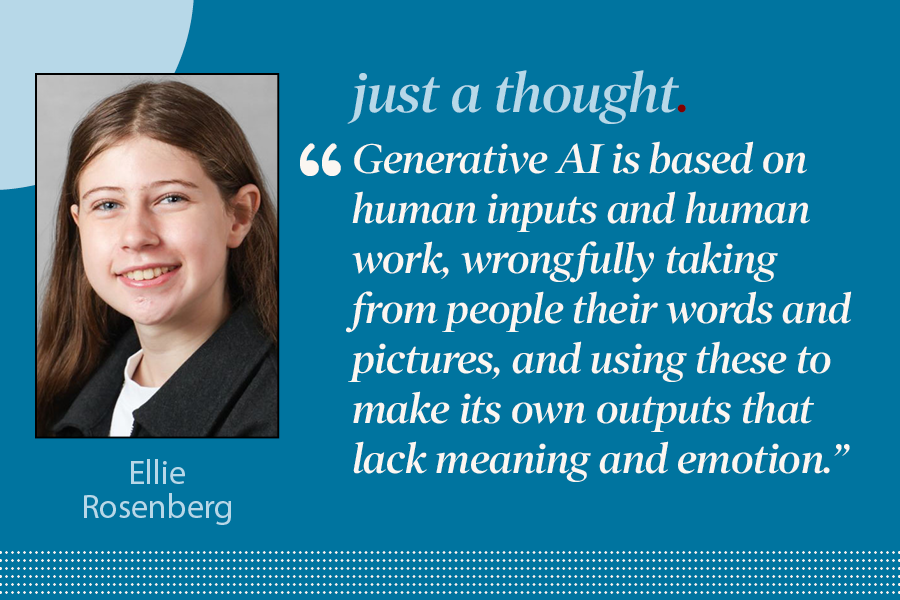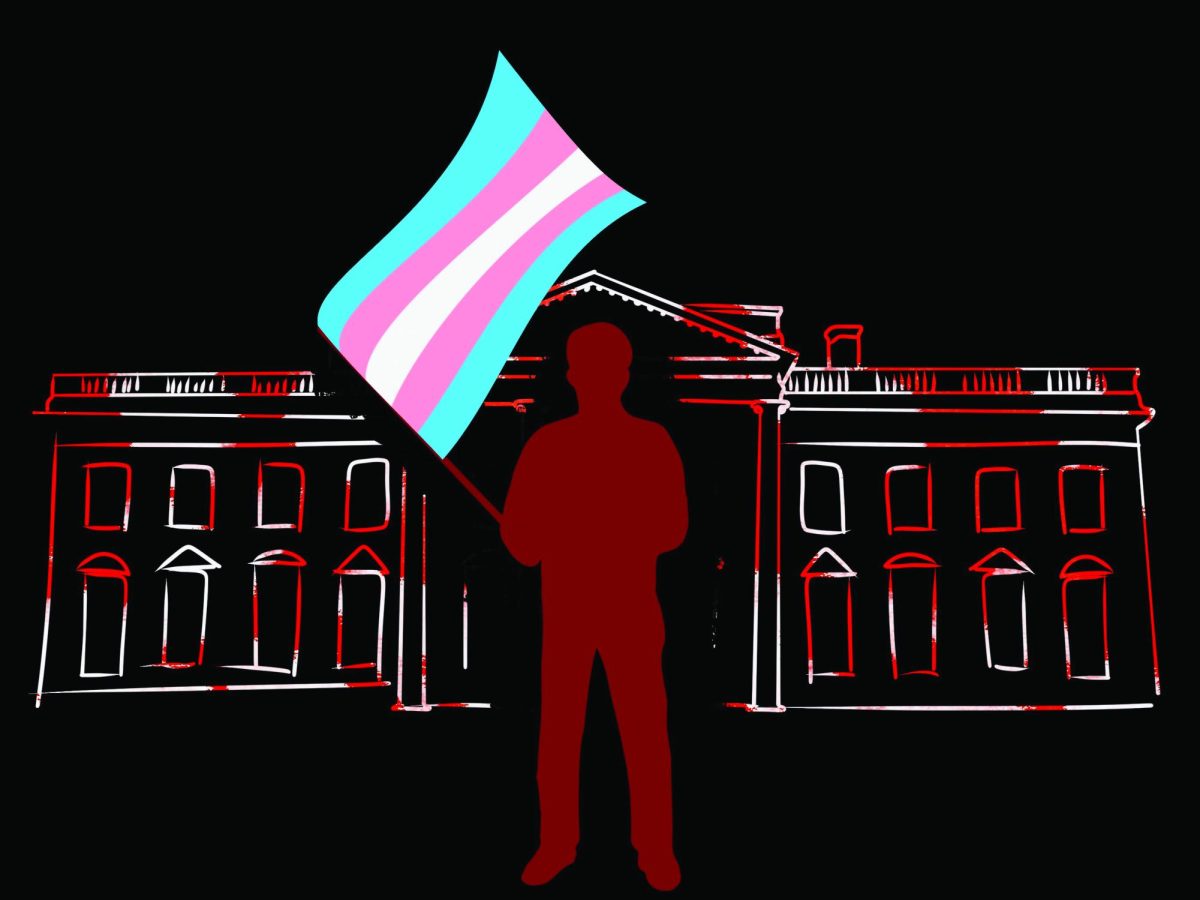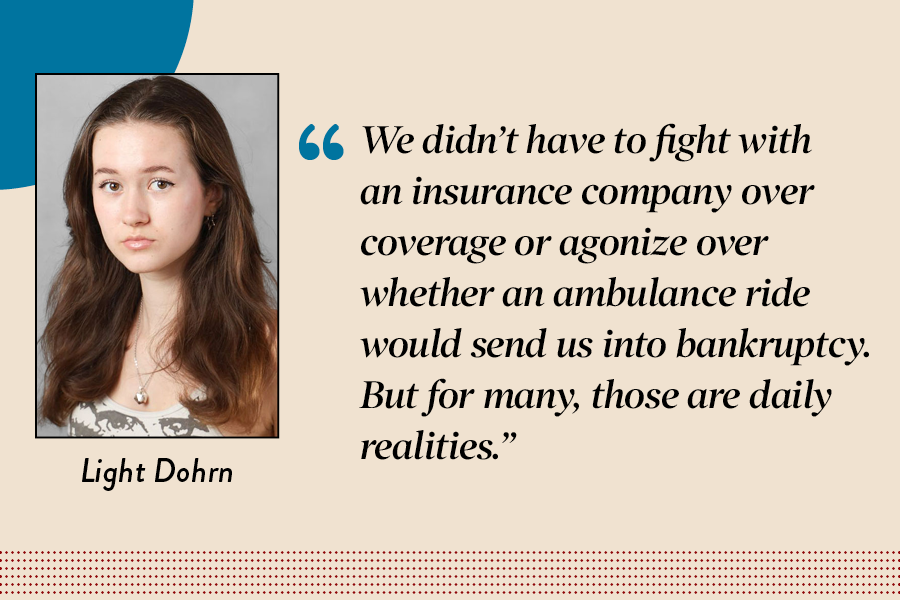Last October — exactly a week before my 17th birthday — my mother was hospitalized with pericardial effusion. What had seemed like simple shoulder pain turned into a weeks-long stay in the intensive care unit, as my dad camped out with her in the hospital and my grandparents took care of me.
For us, insurance was never a concern. Access to the best specialists, treatments and accommodations was always within reach — but still, as I sat alone in the hospital waiting room (or with my dad, doing trigonometry homework), many “what ifs” ran through my head. What would have happened to my mother if we didn’t have insurance? Would she have received the same level of care? Would we have hesitated to take her to the hospital at all? I was worried that the effusion was caused by cancer, that my mom would die on a hospital gurney, or that she would miss my birthday. What I wasn’t worried about? Not being able to afford treatment at all.
The question of what health care costs — or, more accurately, what it should cost — is one that can’t be ignored, especially after the murder of United Healthcare CEO Brian Thompson on a Manhattan street Dec. 4. The attack suspected to have been carried out by Luigi Mangione, whose mother endured years of unlivable pain after hitting her deductible early on, reignited a national debate about the ethics of for-profit health care — and for me, it was impossible to separate the headlines from my lived experience. Mr. Mangione’s mother suffered and suffered because she didn’t receive proper care for her condition, and he himself endured years of chronic back pain — and I would bet that had that been my own mother, I would’ve been homicidal, too.
For so many, the system seems designed to fail. Mr. Thompson’s murder was a shocking act of violence, and of course, nothing excuses blatant murder. But this specific one exposed the frustration and desperation simmering beneath the surface of our health care system.
Wealth is, and has always been, a shield in America. My family’s situation meant that when my mom’s life was in the balance, we didn’t have to weigh it against our bank account. We didn’t have to fight with an insurance company over coverage or agonize over whether an ambulance ride would send us into bankruptcy. But for many, those are daily realities. A study from the National Library of Medicine found that nearly two-thirds of bankruptcies in the United States are tied to medical issues, either because of high costs or lost income due to illness. Obviously, that’s an extremely grim statistic.
For those of us with privilege, it’s easy to think of the system as flawed but functional — and if you feel that this act of violence was uncalled for, it should give you pause to consider the millions of silent murders committed by the country’s health care system every day that target those who don’t have the money or privilege to access adequate medical treatments. The only difference? This one was louder.

























































hari • Feb 22, 2025 at 4:18 pm
Light, in weaving your family’s story into the larger story, your writing gains momentum and power. You highlight how the impact of income inequality determines who survives and recovers and who becomes broken, suffers and perhaps even perishes. Thank you for opening your heart and nailing this article.
Thomas • Jan 29, 2025 at 1:51 pm
Bro what are you talking about you would have killed someone. Murder is not ok. Lab Liberty #1!!!
Lisa Hilarides • Jan 25, 2025 at 12:05 pm
Light, Thank you for a thoughtful article. My family has also benefited from health insurance. John has had three open-heart surgeries. The last in 2015 occurred three months after a misdiagnosis and a new cardiology team. The final cost was over $1million. If not for insurance we would have been bankrupt or, more likely, he would have died. I remain humbled at the level of privilege from which we continue to benefit.
I am so happy that your mom got the care she needed to save her life.
Isabel • Jan 22, 2025 at 12:44 pm
Beautifully written Light and I couldn’t agree more! Kudos!
Annie Gauger • Jan 20, 2025 at 11:39 am
Well said, Light. Hospitals and healthcare should never be made available for only those who can pay, but as a necessity available for all. The question is, how do we get there? I hope your mom is better. Good luck in the new year.
Rudi • Jan 19, 2025 at 9:15 am
Nicely written & beautifully expressed, Light(ie)! You have a bright future in journalism.
We still have your shell sculpture on our windowsill from years ago – Tx!
Rudi in Ann Arbor
Donna Mitchell • Jan 18, 2025 at 7:41 pm
This article is spot on. Our healthcare system is a joke. There is no way that healthcare should be a money making, for profit endeavor for insurance companies who more and more often are the ones deciding what care we receive. We should at least have a basic, Medicare-type system for every citizen of the US. It’s a travesty that we don’t.
Robin Davidson • Jan 18, 2025 at 6:30 pm
Thank you, Light Dohrn, for your astute and courageous insights! Yes, “[w]ealth is, and has always been, a shield in America” and often masks “the desperation simmering beneath the surface of our health care system.” I am grateful for all you have written here. Your generation gives me hope!
Valerie Halston • Jan 18, 2025 at 5:43 pm
Very well written piece. You nailed it, Light. As you so aptly put it nothing excuses the blatant murder of healthcare CEO Brian Thompson, yet “take pause to consider the millions of silent murders committed by the country’s healthcare system every day that target those who don’t have money.”
Shannon Williams • Jan 18, 2025 at 3:30 pm
Not only is U.S. healthcare impossible to afford but it is also painfully slow. I work as an herbalist and nurse practitioner at a native health center in California which is great because natives can access care there for free, but it is limited by many factors. I have had many a patient exclaim that if there problem were cancer they would already be dead with how long one waits to see a specialist, have a diagnostic, or a surgery of late. It has slowed significantly since the pandemic. Less and less people are interested in working in such a sad environment where their hands are tied in ability to do what they were trained to do. Insurance companies pay doctors to argue with us over whether patients really need care or not. This is called a peer-to-peer and one waits on the phone to speak to the peer / doc working for the insurance company while patients wait in clinic to see us. When we finally speak to the human but perhaps not humane doc, they question our order. Perhaps this doesn’t seem like such a big deal to some, questioning the doctor’s orders? In fact it’s quite common place since pandemic doubters took over the nation. But what exactly are we even trained for, taking all the responsibility without any credence or respect? They call the mass burnout of healthcare workers ‘compassion fatigue,’ but we haven’t lost compassion for patients. We have lost patience for the lack of compassion in our system. Well said, Light! Great piece!
Eleanor • Jan 18, 2025 at 3:20 pm
Thank you, Ms Dohrn, for a passionate and well-documented reflection on your own family’s trauma and the profound inequalities it reveals. It is indeed criminal that our wealthy society fails to provide first class health care to all and thank you for baring the harsh real of these silent murders.
Sarah Wiliarty • Jan 18, 2025 at 2:43 pm
You are 100% right, but I think the system is even more broken than we fear.
My mom just spent a week at a top hospital. 48 hours of that time was in a room off the ER because they had admitted her to the hospital but did not have a bed. She was in the hospital last month and the doctors incorrectly changed her levothyroxine dose. Both hospital visits resulted in UTIs. The first one led to delirium.
The system is massively overtaxed. So much money is being spent for care that is often inadequate and driven by fear-of-lawsuit rather than what is best for the patient.
Anna • Jan 18, 2025 at 2:39 pm
Hi! This is a lovely lovely piece of sensitive writing. However, I thought you might want to note that the story of Mangioni’s mother that was circulating the internet as his manifesto has been discredited–even the hyperlink in your own article has changed to reflect the true manifesto (which does not in fact allude to personal experience at all, merely statistics.) There’s no reason to believe that Mangioni’s family, who is very financially successful, suffered any kind of deductible or misdiagnosis trauma. (links aren’t permitted in comments but google it and you’ll see.)
This of course doesn’t change the very real traumas people suffer due to coverage gaps or uncaring physicians and insurers; all your points still stand. Just thought you might want to know.
Stephanie Bertiaux • Jan 18, 2025 at 1:55 pm
Well said. Many, many moons ago, my 11 month old godson needed surgery. He had a growth on his hip. Was it cancer? A fatty lump? Impossible to tell without surgical biopsy. It was far beyond what either his parents or I could afford. They both had minimum wage jobs- just over the amount you could make to get state coverage. Far too little to be able to pay on their own for private insurance. I had a college education and no other options. And I was desperate. I started calling government representatives until I found someone who would pull some strings that would allow my godson to qualify and have Medicare for just long enough to have the surgery. Thank God, everything was fine. But it’s stuck with me, over the last 30 years. I got lucky. We got lucky. But what happens to everyone who doesn’t?
Anne-Marie Nicol (Ringler) • Jan 17, 2025 at 1:14 pm
I (Class of ‘66) live in the UK & benefit from their National Health Service which is free to all. However, it too is broken as there is not enough money to provide an adequate service. (That is a very simplistic explanation).
There is a a lack of staff, facilities and even medicines.
Where you live can increase/decrease your chances of suitable treatment and how long it takes to get treatment. In my area knee replacements now take up to 2 years and simple cataract removal 12-18 months.
Yes, we have private healthcare as well and an increasing number of people are taking advantage of it. But, of course, they have to have the wherewithal to afford it.